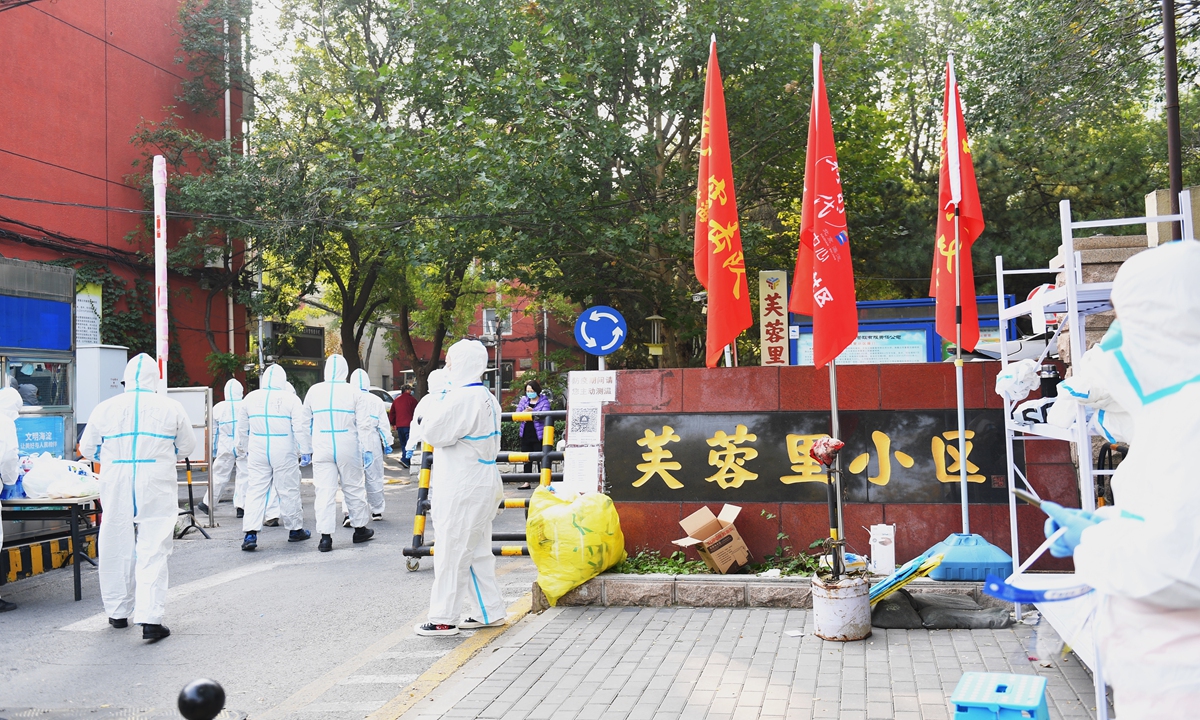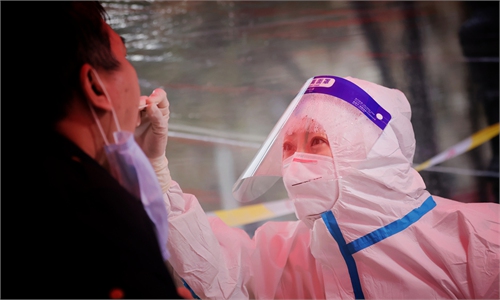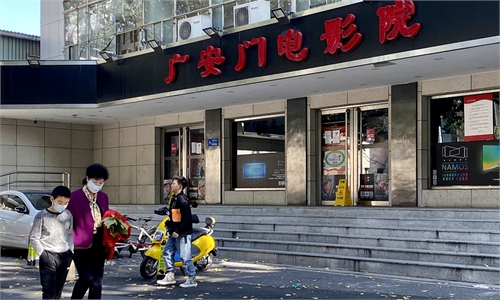Beijing govt apologizes, vows to optimize COVID-19 measures after complaints from residents ‘mistakenly’ restricted from entering city

Working staff transport daily commodities at the entrance of a residential community under lockdown in Beijing on Monday. Photo: VCG
Beijing Municipal Government on Tuesday apologized and vowed to optimize targeted prevention and control measures after some residents complained that they were "mistakenly" restricted from entering Beijing, which affected their schedules.
The municipal government indicated that some misunderstanding was caused by data and technical errors and suggested those who are affected report their problems via online channels.
The response came after many netizens have complained recently that they are restricted from buying tickets for high-speed trains to Beijing even if they have a negative nucleic acid test result and did not visit medium-high risk areas.
Beijing government suggested on Tuesday that the public can report problems through online channels. Upon receiving the complaints, the relevant departments will immediately start the review mechanism and carry out data verification on a case-by-case basis. If there is no abnormality after verification, the restrictions on buying tickets will be lifted.
The Beijing Health Commission on Monday asked residents who are on trips or tours outside of the city to postpone their return if having visited locations where confirmed cases have been during the same period, which has deepened the public's misunderstanding of Beijing's epidemic prevention policy.
If there is "time and space overlap" with the travel schedule of the reported cases, please report your travel schedule to the community (village) work unit and hotel immediately, stay in self-isolation and cooperate with various control measures, the commission said on Monday.
Media learned from the commission that the "time and space overlap" specifically refers to the same community, supermarket, station and airport, etc. Mobile phone numbers that intersect within a certain area of the same base station at a certain time are also recorded as space-time crossings.
Epidemiologists said the reason why Beijing adopted such prevention and control policies is that the flare-up this time features overlapping networks.
The latest COVID-19 flare-up has affected at least 16 provincial-level regions in Chinese mainland so far. Those who have not returned to Beijing for business or tourism should take good personal protection and pay close attention to the epidemic information in other regions, the commissions said.
The Chinese capital reported zero new domestic-transmitted cases and silent carriers on Sunday. Nonetheless, the health authority reminded the public to strengthen their own health monitoring. "If you have fever, cough and other symptoms, please do not have meals together or participate in parties … go to the fever clinic of a nearby hospital as soon as possible, do not take medicine on your own, so as not to delay the treatment opportunity," the commission said.
The move comes after the city has tightened its policy of entering and returning to Beijing. Some analysts believe that the measures are also designed for ensuring the safety of the 2022 Winter Olympics.
Beijing had already tightened its access policy last week. Xu Jianhe, the spokesperson for the Beijing municipal government, said on October 25 that people in county-level regions with one or more local COVID-19 cases and travel history in the county within 14 days are strictly restricted from entering and returning to Beijing, and they will not be given a green code for access.
People from other county-level regions in prefecture-level cities with at least one local COVID-19 case should not return to Beijing unless necessary. Those who really need to come to Beijing must present the green code and a negative nucleic acid test within 48 hours before boarding and should undergo health monitoring for 14 days, Xu said.
Global Times


